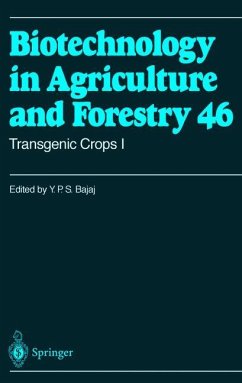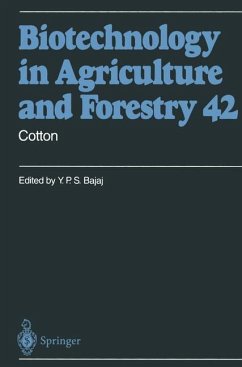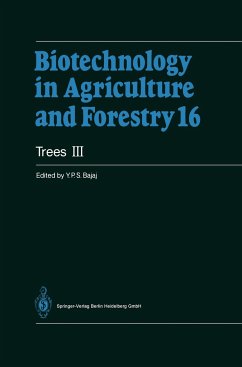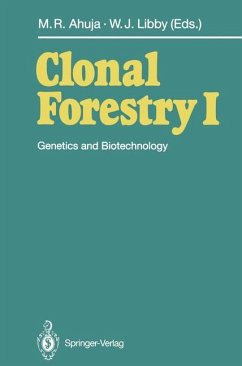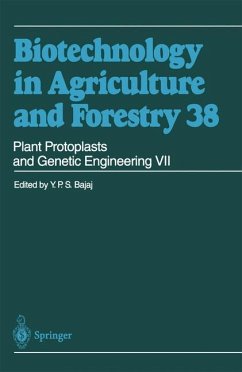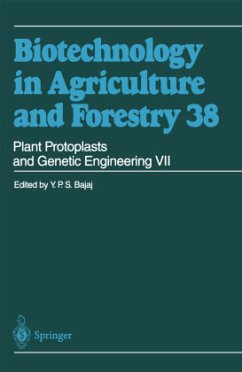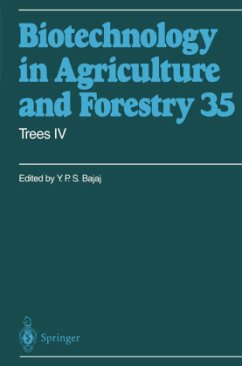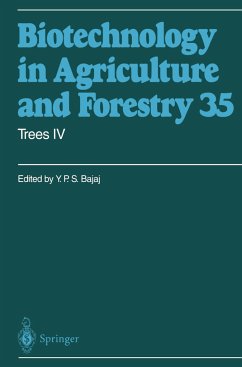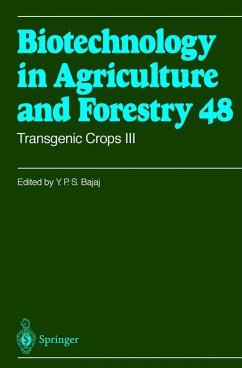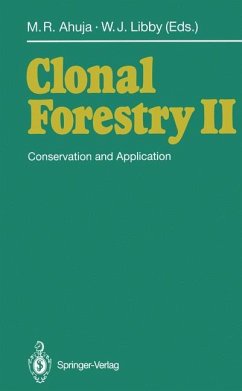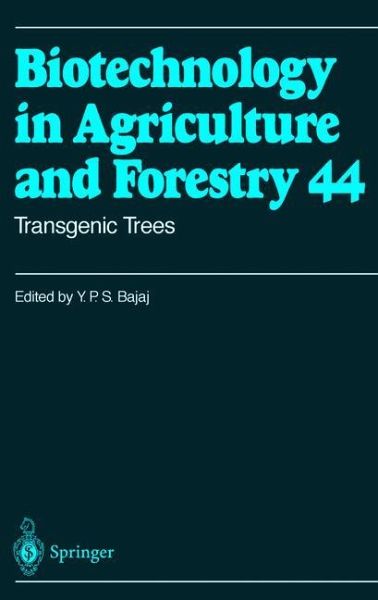
Transgenic Trees
Versandkostenfrei!
Versandfertig in 6-10 Tagen
76,99 €
inkl. MwSt.

PAYBACK Punkte
38 °P sammeln!
Over the last decade there has been tremendous progress in the genetic transformation of plants, which has now become an established tool for the insertion of specific genes. Work has been conducted on more than 200 plant species of trees, cereals, legumes and oilseed crops, fruits and vegetables, medicinal, aromatic and ornamental plants. Transgenic plants have been field-tested in a number of countries, and some release_d to the farmers, and patented. Taking the above-mentioned points into consideration, it appeared nec essary to review the literature and state of the art on genetic transfor...
Over the last decade there has been tremendous progress in the genetic transformation of plants, which has now become an established tool for the insertion of specific genes. Work has been conducted on more than 200 plant species of trees, cereals, legumes and oilseed crops, fruits and vegetables, medicinal, aromatic and ornamental plants. Transgenic plants have been field-tested in a number of countries, and some release_d to the farmers, and patented. Taking the above-mentioned points into consideration, it appeared nec essary to review the literature and state of the art on genetic transformation of plants. Thus 120 chapters contributed by experts from 30 countries (USA, Russia, Canada, France, Germany, England, The Netherlands, Belgium, Switzerland, Italy, Spain, Bulgaria, Yugoslavia, Denmark, Poland, Finland, Aus tralia, New Zealand, South Africa, China, Japan, Korea, Singapore, Indonesia, India, Israel, Mexico, Cuba, etc. ) are compiled in a series composed of the fol lowing five books: 1. Transgenic Trees comprises 22 chapters on forest, fruit, and ornamental species such as Allocasuarina verticillata, Casuarina glauca, Cerasus vul garis, Citrus spp. , Coffea species, Diospyros kaki, Eucalyptus spp. , Fagara zanthoxyloides, Larix spp. , Lawsonia inermis, Malus x domestica, Picea mariana, Pinus palustris, Pinus radiata, Poncirus trifoliata, Populus spp. , Prunus species Rhododendron, Solanum mauritianum, Robinia pseudoa cacia, Taxus spp. , and Verticordia grandis. 2.



